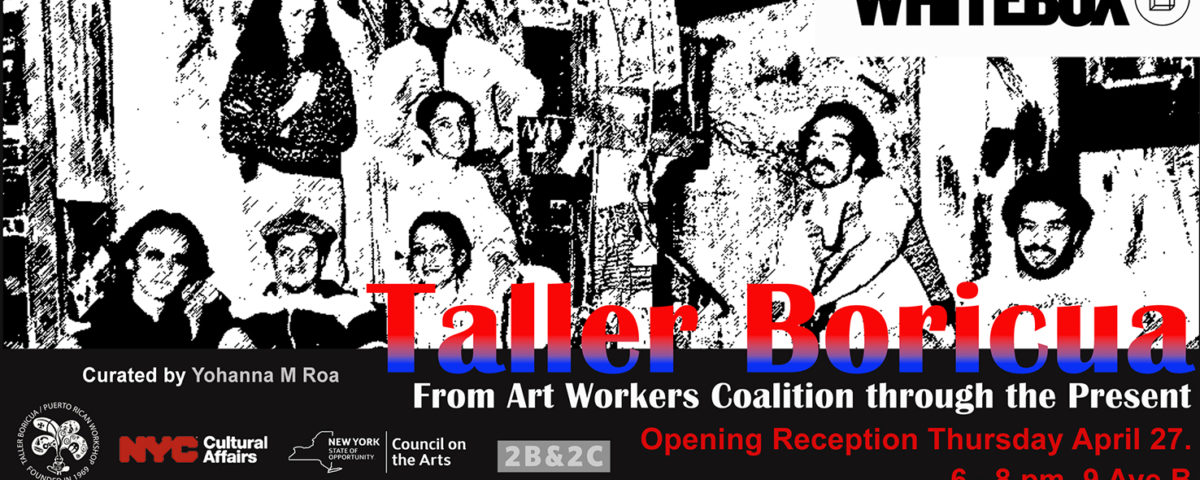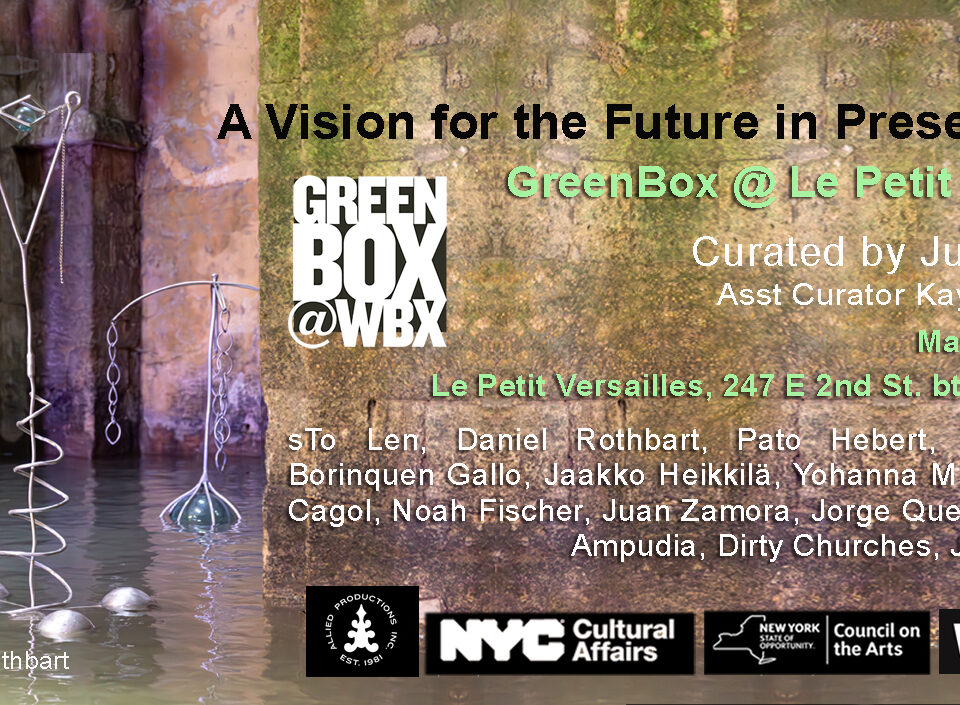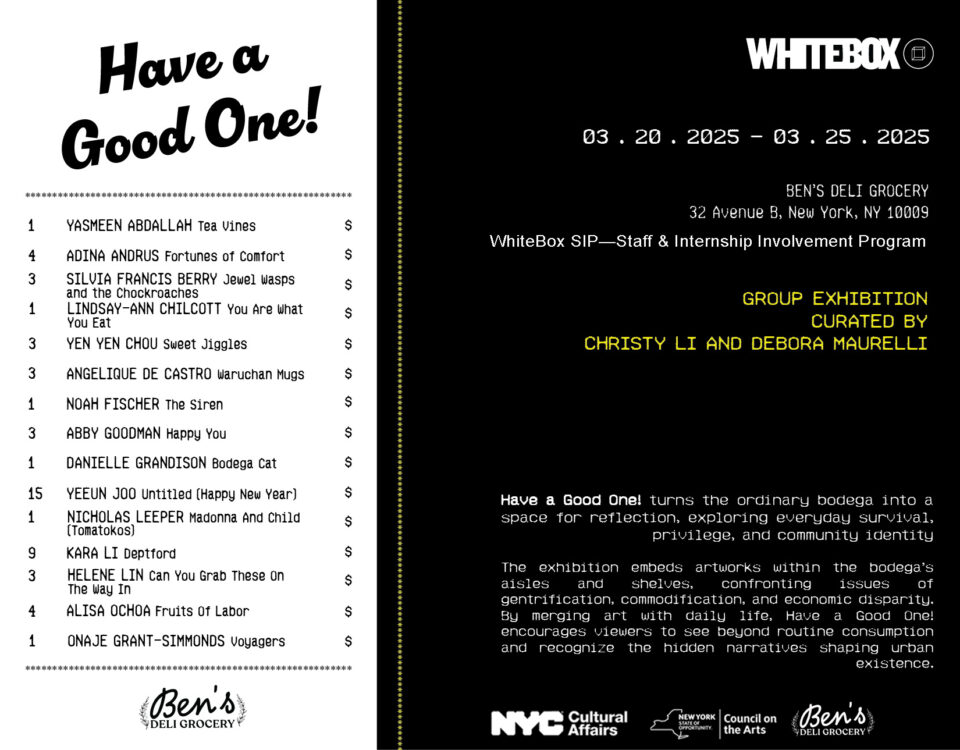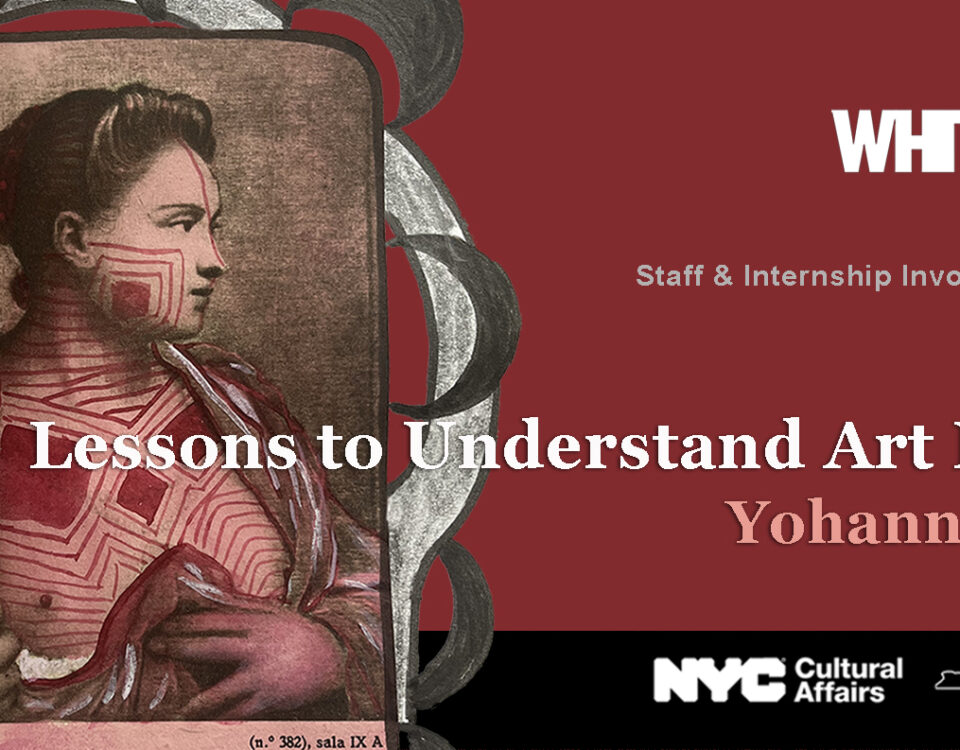
SUMMA
March 19, 2023
Liu Xuguang, Dialogue with Arthur C. Danto. Upcoming Exhibition
May 1, 2023From ArtWorkers Coalitions through today
Curated by Yohanna M. Roa
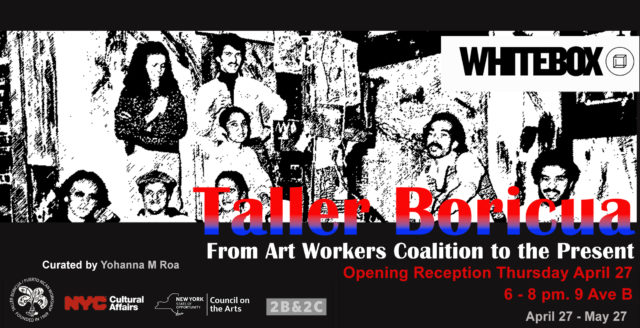
Opening Reception: April 27, 6- 8 pm
April 27 – May 27, 2023
Tuesday – Saturday 12am-6pm
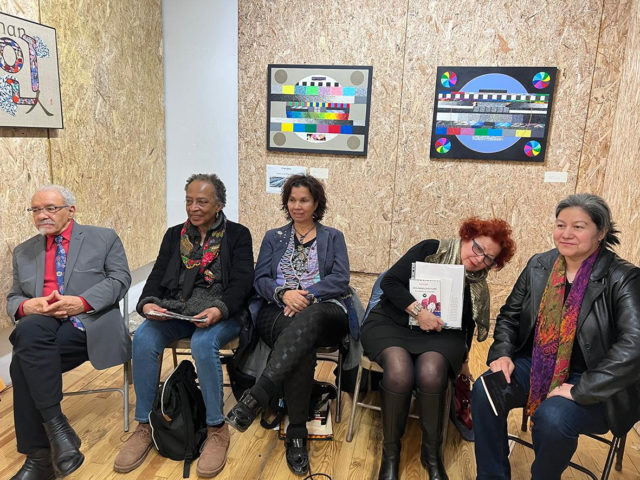
Jesús Papoleto Meléndez, Lois Elaine Griffith, Diana Gitesha Hernández, Margarita Drago, Juana Ramos.
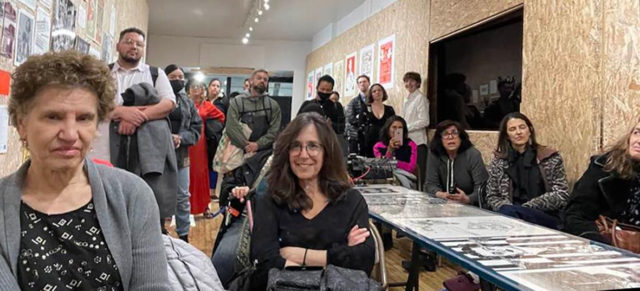
Taller Boricua Artists: Marcos Dimas, Adrián García, Manuel Otero, Jorge Soto Sánchez, Nitza tufino, René Ojeda, Davo Cruz, Armando Soto, Myrna Rodríguez, Jimmy Jiménez.
Women Artists: Esperanza Cortés, Stephanie S. Lee, Lori Horowitz, Lina Puerta, Ellen Alt, Yolanda Velasquez. Portfolio from the print-making workshop “The Nationalist Women That History Forgot.”
Poets: Juana Ramos, Margarita Drago, Diana Gitesha Hernández, Lois Elaine Griffith.
Video “The Puerto Rican Obituary, Pedro Pietri” by Jorge Lozano. *Premiere.
Video ARTFORALL: Willy Correa and Marcos Dimas
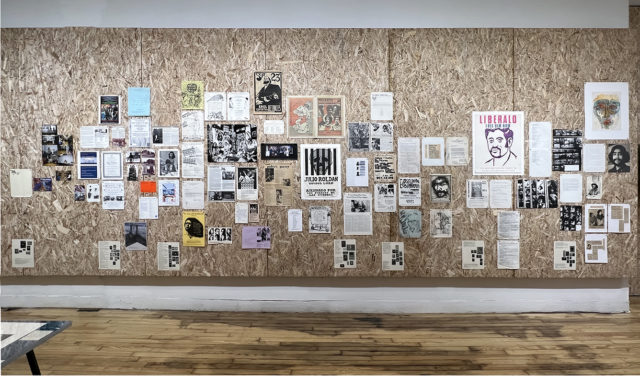
Taller Boricua emerged in East Harlem within the cultural landscape of New York City in 1969, alongside the artistic effervescence that took place Downtown, particularly in SoHo, Tribeca, and the Lower East Side. Their objective was to activate, through art, processes of social resistance in frequently neglected, underserved communities. From the beginning, they have been part of the Nuyorican movement that originated in the late 1960s in neighborhoods like Loisaida, Williamsburg, and East Harlem aka El Barrio; visual artists, writers, especially poets, and musicians, converged in El Taller (The Workshop), where prints, Spoken Word and Salsa developed within the environment of Latin American culture, today deeply rooted in New York.
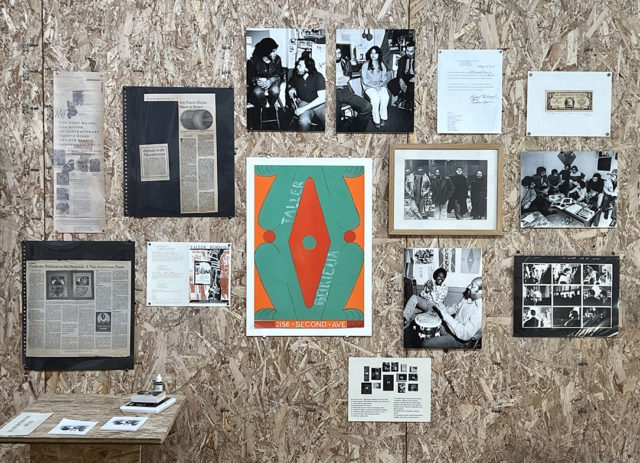
El Taller Boricua (The Boricua Puerto Rican Workshop), From the Art Workers Coalition to the Present, is the first exhibition of in the “New York Artscapes”, in which WhiteBox is creating a platform to welcome and make visible cultural processes that have fundamentally constituted the cultural landscape of this city while and are dwelling outside the hegemonic discourse, due to to the condition of race, gender, and/or social class. The show presents a panoramic view of the 50-year history of the Workshop, which reveals the volume and complexity of their artistic production directly linked to the social and historical problems of the context. It is an ongoing archival exhibition because it is understandable that after 50 years of uninterrupted work, their work methodologies have been transformed along with their own life stories. Thus, our pondering over New York City’s storied past is quite different now than in 1969.
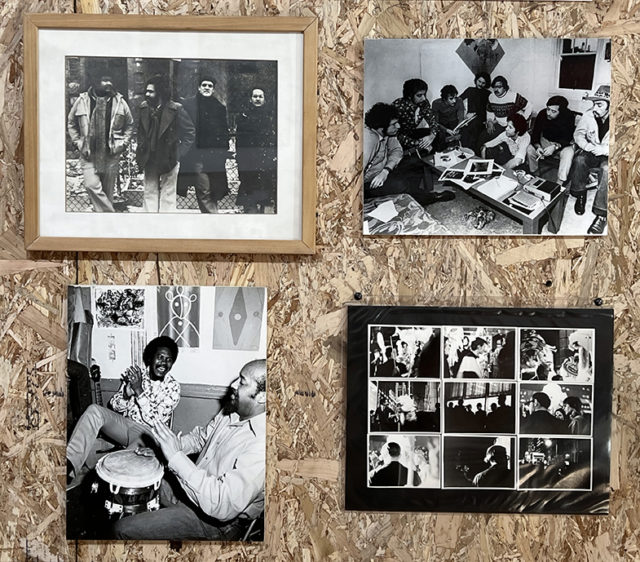
In New York, the 1970s were characterized by the growing activism within the artistic movement; in May 1970, those the artists demonstrated in the commonly known “Art Strike” against racism, sexism, repression, and the Vietnam War. Likewise, artists based in the city began questioning the essence of art, transforming how contemporary art was created and exhibited, seeking to push the limits of the white cube. For its part, Taller Boricua has worked from what is known today as “insurgent aesthetics.”[1], where their artistic practices are defined as collective, relational, and situated; therefore, they are an expansive form of manifestation against extant forms of domination. Their trajectory reveals their resistance to racial and social class violence exerted on the non-white population, especially upon the Puerto Rican population in New York City.
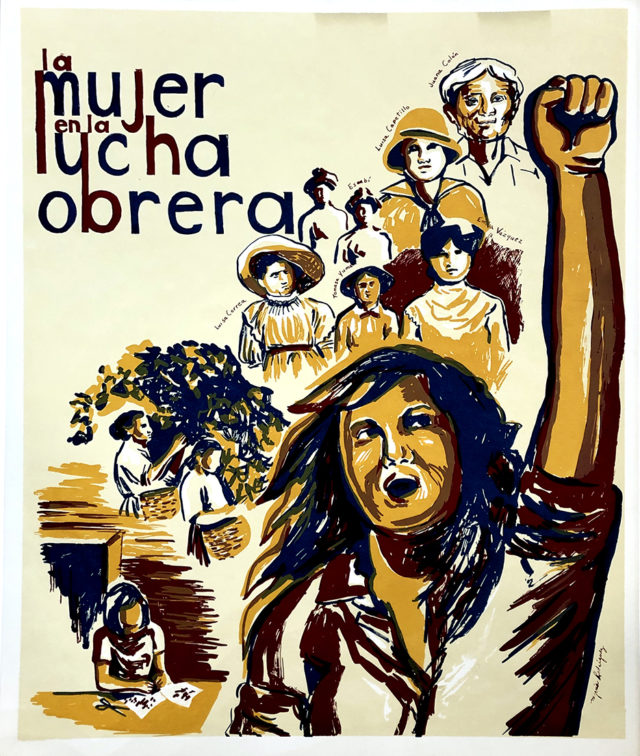
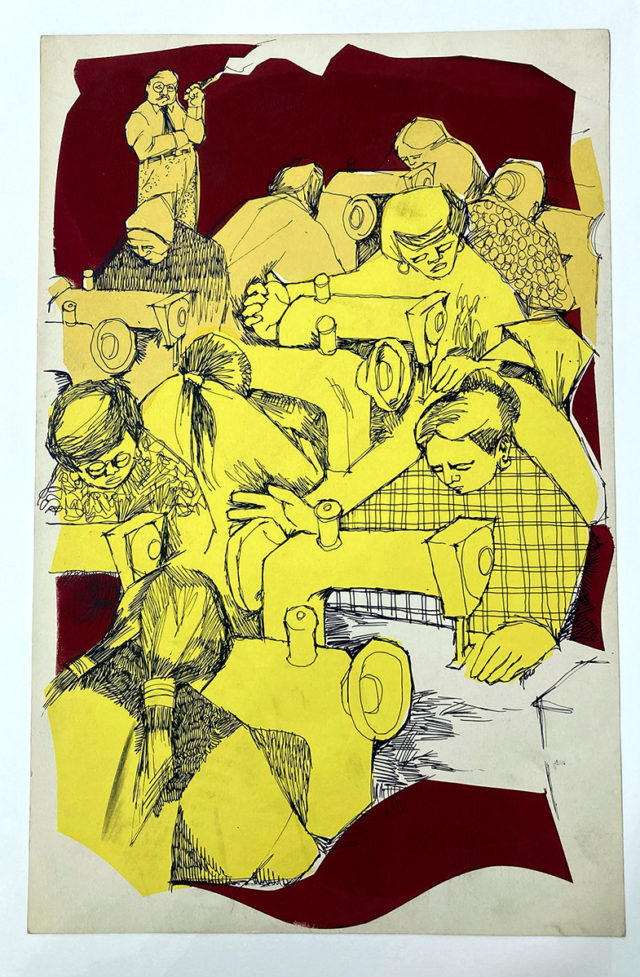
La mujer en la lucha obrera, Portafolio proletario c. (The Woman in the Workers Struggle, Proletarian Portfolio) 1976 Serigraph by Myrna Rodríguez
(#36) Intultado #2 (Untitled #2) 1975 Lithograph by Manuel Otero
The Workshop was founded by the artists Marcos Dimas, Adrián García, Manuel Otero, Armando Soto, and Martín Rubio, who in parallel were linked to the AWC movement (The Art Workers Coalition), where (among various statements) museums were required to become more open and less exclusive regarding exhibition policy regarding when working with the artists they exhibited and promoted. One year after the founding of Toleration, the community of Latin American visual artists, writers, and musicians, especially Puerto Ricans, had expanded: Nitza Tufiño, Ada Soto, Carlos Osorio, Olga Alemán, Rafael Tufiño, Dylcia Pagan, Edwin Pitre, Julius Perri, Juan Gonzales, Bobby Ortiz, Jimmy Jiménez, Abdías Gonzales, Sammy Tanco y Vitin Linares, among others. Early on, they had the vision of developing programs that revolved around the reclaiming of Puerto Rican roots, including the rescue of the Taino past and processes of social and educational resistance in schools and public spaces in East Harlem, direct links with the socio-political activist group The Young Lords, support for families of young people killed by the police and dissemination of Nuyorican cultural production.
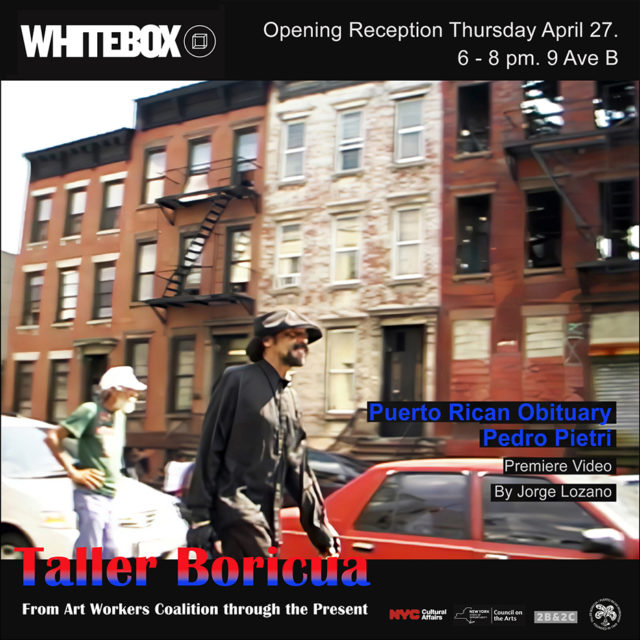
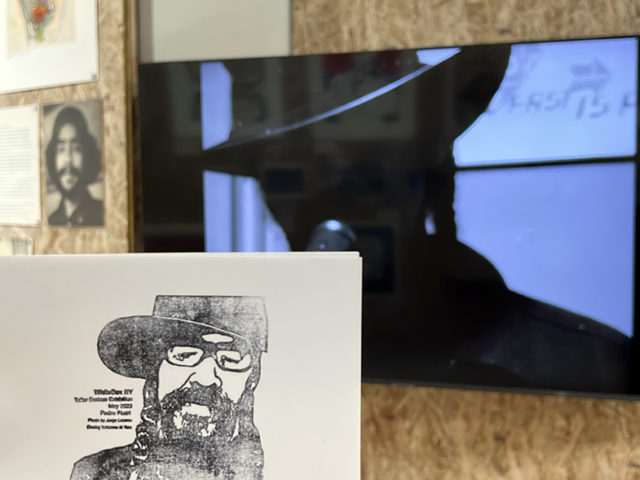
video screening premiere of “The Puerto Rican Obituary, Pedro Pietri” by Jorge Lozano, who documented the poet in his last years through the streets of New York City, to be shown daily
The exhibition includes three bodies of work: the current archive of the Taller Boricua, with showcasing photographic and film documentation, letters, posters, publications, and clippings, while at the same time once, giving offering an account of the extensive activities and transdisciplinary work such as exhibitions, poetry readings, concerts and, dances. Art produced in the workshop included prints, silkscreens, woodcuts, and various new printing techniques. The exhibition highlights the work of the women visual artists and writers linked to the workshop: Esperanza Cortés, Stephanie S. Lee, Nitza Tufiño, Lori Horowitz, Lina Puerta, y Ellen Alt. At the same time, as part of upcoming public programs, while we invited the exhibition, we have a select group of powerful women poets to give live readings: Lois Elaine Griffith, Diana Gitesha Hernández, Juana Ramos, y Margarita Drago. We also have alongside the video screening premiere of “The Puerto Rican Obituary, Pedro Pietri” by Jorge Lozano, who documented the poet in his last years through the streets of New York City, to be shown daily.
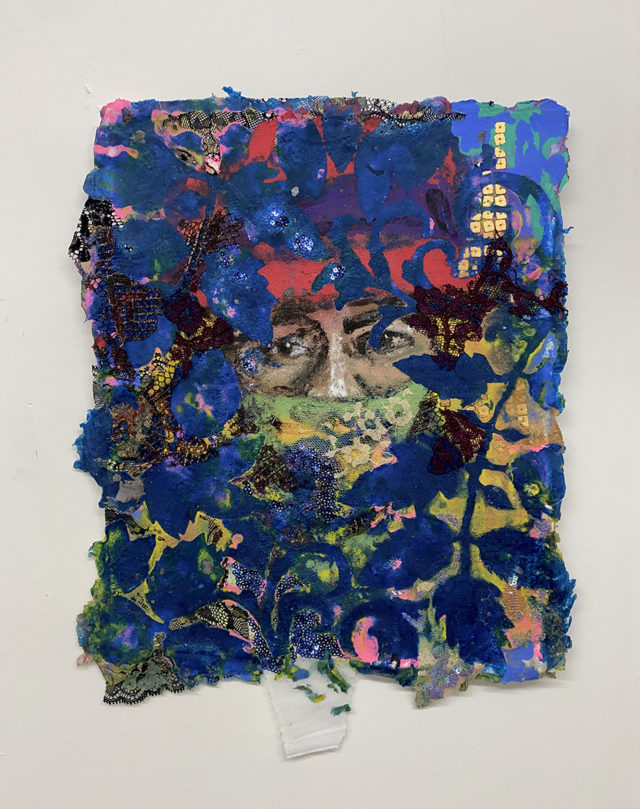
Untitled (Blue Woman) by Lina Puerta. From the Latino Farmworkers in the US – Portraits Series, 2018
Taller Boricua, from Art Workers Coalition to the Present, avoids the abstraction of historical constructions that are commonly used and make systematic violence invisible, and in this way, the exhibition relocates in bodies and memories the experiences of the construction and rooting of the vast Latin American population in this city. The show seeks to make evident the process by which an idea has been built in which racial, social, and gender stratification has historically built a cultural landscape in which those people of color, those bodies that know how to move to the rhythm of the drums, seem distant and alien, when in fact they are familiar and intimate and are the heartbeat of New York City’s vibrant life and remarkable history.
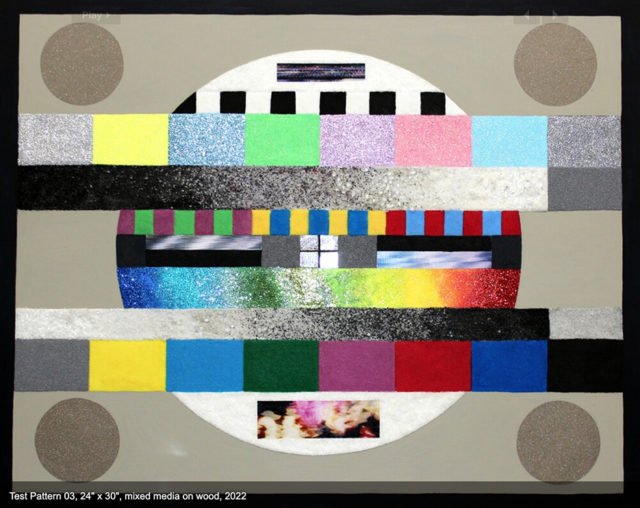
Test Pattern by Ellen Alt, 2022
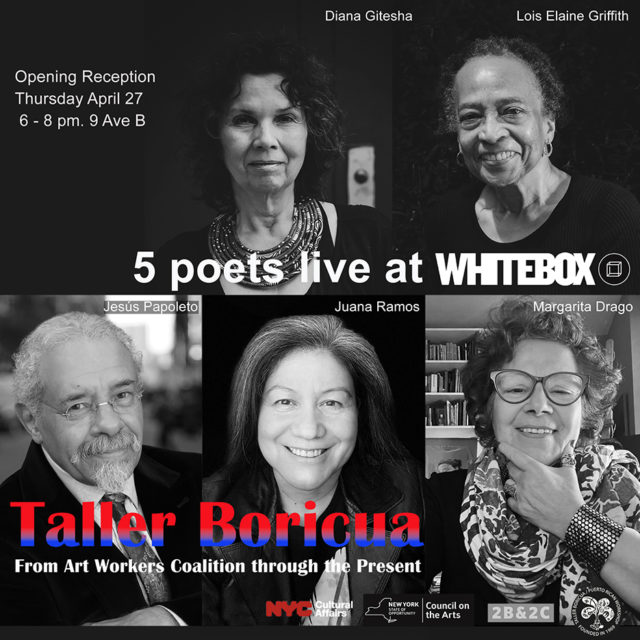
Poets: Lois Elaine Griffith, Jesús Papoleto, Diana Gitesha Hernández, Juana Ramos, Margarita Drago.
Lois Elaine Griffith is an artist/writer and one of the founders of the Nuyorican Poets Cafe. Retired from teaching English at CUNY’s Borough of Manhattan Community College, she has initiated the Nuyorican Poets Cafe Founders Archive Project to assure recognition and study of the Cafe’s place in American arts. Currently, she is at work on her project Come to Terms/Llegar a un acuerdo about the many levels of translation, and to further this project she has been granted support from the Schomburg Center in Black Culture and Research.
Jesús Papoleto Melendez, raised in New York City’s east Harlem, poet and playwright he is one of the founding poets of the Nuyorican poetry movement. Melendez’s poetry collections include Casting Long Shadows (1970), Street Poetry & Other Poems (1972), Concertos on Market Street (1993), and the bilingual volume Hey Yo! Yo Soy! 40 Years of Nuyorican Street Poetry: The Collected Work of Jesús Papoleto Melendez (2012, volume 1). His work is also featured in Nuyorican Poetry: An Anthology of Puerto Rican Words and Feeling (1975, edited by Miguel Algarin and Miguel Pinero),
His honors include a New York Foundation for the Arts fellowship, the Louis Reyes Rivera Lifetime Achievement Award, an Artist for Community Enrichment Award from the Bronx Council on the Arts, and a joint fellowship from the National Endowment for the Arts and Combined Arts of San Diego.
Diana Gitesha Hernandez, aka Gitesha is an NYC poet, born in Puerto Rico, bred in Brooklyn and longtime resident of Loisada, Manhattan. Hernandez, a multi-media artist; jazz singer, drummer/percussionist, spoken word/poet and author of several collections of poetry: notably “Raw Lips Melao; a Nuyorican Rhapsody” (2004, reprinted 2020), and her breakthrough CD “Imbued” which combines songs from the American songbook with her poetry. Hernandez is published in several anthologies, Aloud!; Voices from the Nuyorican Poets Cafe, Breaking Ground of Puerto Rican Women Writers in New York (1980-2012), Heal; between the pages of these folks we seek a panacea (2013) and NYC From the Inside ((2022) and in audio collections, Fatoosh (2007), and “Beauty Keeps Raising Her Sharp Knife Against Me” (2007) . She has appeared on WBAI, venues though-out the city, and hosts jazz and poetry events at The Watering Hole 68 2nd Avenue, corner of E. 4 St.. Hernandez (HER. ) is also a painter/printmaker/ceramist and member of the Taller Boricua, massage therapist and prior NYC BOE school counselor,
Juana M. Ramos was born in Santa Ana, El Salvador, and currently lives in New York City where she is a professor of Spanish and literature at York College, the City University of New York (CUNY). She has participated in international poetry festivals and recitals in Mexico, Colombia, the Dominican Republic, Honduras, Cuba, Puerto Rico, El Salvador, Argentina, Guatemala, and Spain. She has published several books of poetry: Multiplicada en mí, Palabras al borde de mis labios, En la batalla, Ruta 51C, Sobre luciérnagas, Sin ambages/To the Point, and Aquí no hay gatos. She is coauthor of Tomamos la palabra: mujeres en la guerra civil de El Salvador (1980-1992).(We take the word: women in the civil war in El Salvador) Her work has been partially translated into English, Portuguese, and French.
Margarita Drago (Argentina). Poet, narrator and Professor of Spanish at York College. As an ex political prisoner and writer, she has represented Argentina in congresses in the United States, Latin America and Europe. She is the author of Fragmentos de la memoria. Recuerdos de una experiencia carcelaria (1975-1980), (Memory fragments. Memories of a prison experience) declared of cultural interest by the Honorable Chamber of Deputies of the Republic of Argentina. A revised and expanded edition, Fragmentos de la memoria. Mi vida en dos batallas, (Memory fragments, My life in two battles) has been recently published in Argentina. She is the author of eight books of poetry, several articles and academic studies, and coauthor of Tomamos la palabra: mujeres en la guerra civil de El Salvador (1980-1992) (We take the word: women in the civil war in El Salvador)

